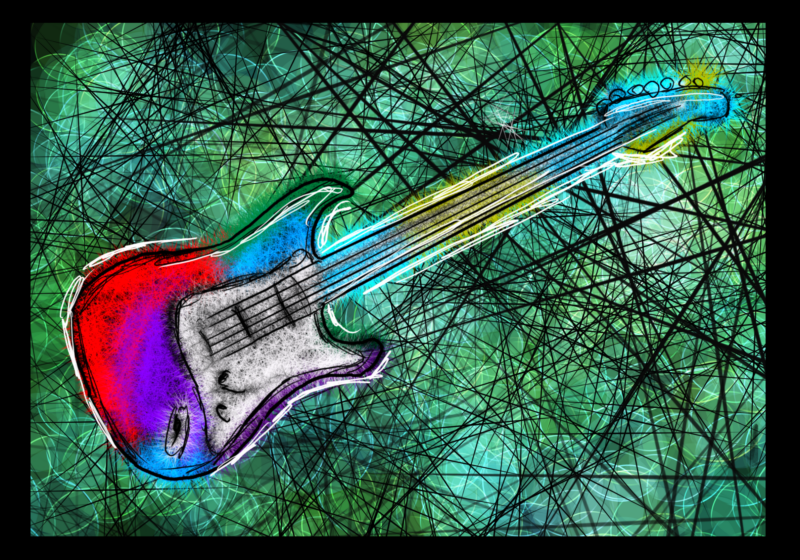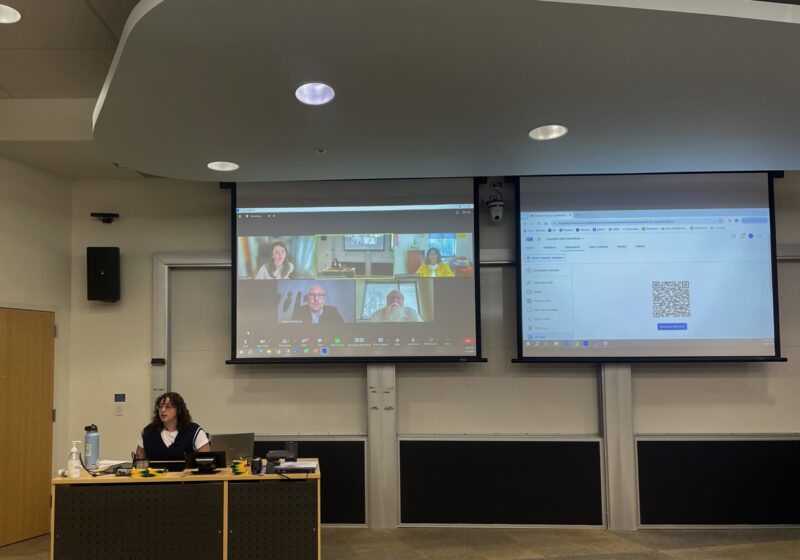UR may soon shed its reputation as largely science-oriented. The Humanities Project, a working group comprised of the chairs of the humanities departments and funded by a $100,000 grant from President Joel Seligman’s Venture fund, is funding 10 projects to support work in philosophy, the arts, languages and other disciplines. The project will also bring scholars, speakers and debates to help support the initiatives.
Through events and guest speakers like Mahatma Ghandi’s grandson Arun, who spoke at the Interfaith Chapel in September, chairs of the humanities department have designed programs to generate interest among students and the community. Humanities departments are hoping to emerge from under the shadow that the science departments have cast.
“I don’t think a kind of concerted effort has been made to do this before,” Humanities Fellow Claire Sykes said. “I think it’s great that this kind of support and attention is happening in the Humanities because we do great work here.”
The mission is clear, the Humanities Project will help those departments rise in prominence and progress.
“The word ‘project’ was chosen because of its proactive connotation,” Art Department Chair and one of the project coordinators Allen Topolski said. “Inherent in interdisciplinary endeavors is an expectation of exponential growth and branching out.”
Topolski also sees value in the cooperation of the various departments. “This overlap of events and departments fosters an opportunity for exchange that may not have occurred,” he said.
Sykes agreed. “What we needed on campus was collaboration between the various Humanities departments. Often they’re working in isolation and it’s great for those members of the faculty to actually collaborate across disciplinary boundaries,” she said.
While drawing attention to the Humanities, the project serves another purpose – being downright enlightening. Students hoping to form more intelligent opinions on the Iraq war will be interested to hear author and Rutgers Philosophy professor Jeff McMahan speak on “Preventive War Morality and Law,” on Nov. 15 and observe a chat in February by Georgetown Law Professor David Cole titled “Less Safe, Less Free: Why We are Losing the War on Terror.” Both events are part of the yearlong program “Law and the War on Terror.”
An art program, “Absence/Excess/Loss” runs from April 20 to May 20 and is “a group exhibition of site specific, installation-based work that considers how the process of repetition informs memory and melancholia,” according to the Humanities Project web site (http://www.rochester.edu/college/humanities.)
Students can expect artist installations exclusive to each gallery by artists hailing from as far away as Hawaii, and the exhibition will encompass a number of separate establishments.
One of the strongest aspects of these programs is their relationship to the classroom, according to Anthropology Department Chair and head project coordinator Thomas Gibson.
“When we were deciding how to spend this money in our call for proposals we asked for something that would connect to courses that were being offered,” Gibson said. “Students will be able to actually meet the people in person that they’re reading. I always found that interesting.”
One such event will likely be Gibson’s own “grand finale” on April 20, titled “Religious Transgressions of Modernity,” in which a number of experts, including Boston University Anthropology professor Robert Hefner and University of Michigan Continued from Page 11
History professor Juan Cole will be discussing religion and war in the Middle East.
The program “The Transatlantic Twenties: America, Europe, and the Making of Modernism” takes the Humanities Project one step further by being the only program centered on an undergraduate class. Co-taught by history professors Joan Rubin and Celia Applegate, the class is designed to expose underclassmen to various guest lecturers and provide an overview of UR humanities. This is the first year the course is offered.
Among the programs and lectures there is one more common goal for the Humanities departments. “I’m hopeful that this idea can eventually grow into a Humanities Center that would accommodate a larger ongoing project – one that further highlights the strengths and diversity of UR’s Humanities Departments and programs,” Topoloski said.
According to faculty, a UR Humanities Center would elevate the Humanities to those programs of contemporary schools, and provide a stronger liberal arts foundation for one of the “New Ivies.”
“The University of Buffalo has a humanities institute; Cornell has a society for the study of humanities,” Sykes said. “Various universities that have significant humanities activities usually have an institute or an assembly. I think we have a significant and strong humanities core here that it would warrant moving it in that way.”
If so, the Humanities Project will certainly be seen as the jumping point.
Fountaine is a member of the class of 2008.





